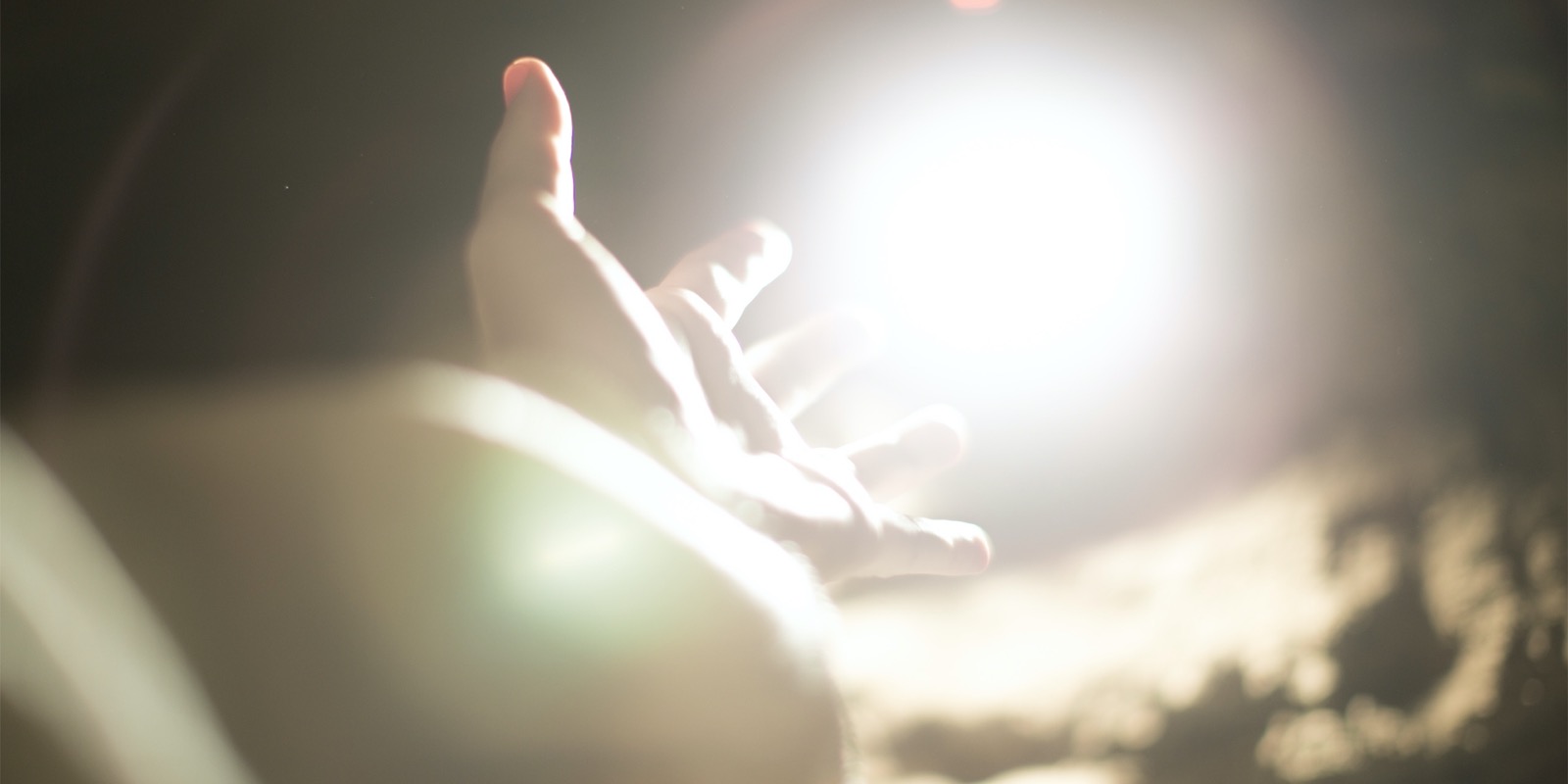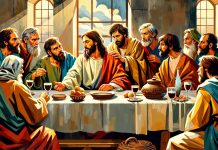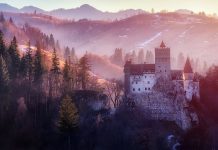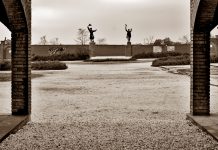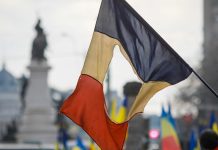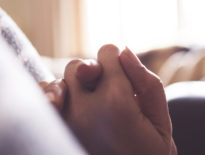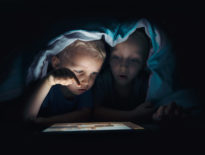Let the one who walks in the dark, who has no light, trust in the name of the Lord and rely on their God. – Isaiah 50:10
Someone close to me, who does not consider himself much of a churchgoer, recently shared with me his frustration over not being allowed to go to church whenever he wanted to because of the COVID-19 pandemic. He asked me whether this could be what typically happens when you realise you have been taking something for granted. It was almost the same phenomenon Romanian historian Nicolae Iorga described when comparing liberty with air: only when the air is missing do you become aware of it and cherish it. We were nearing Easter holidays, and the issues at the core of these holidays—the Resurrection and Light of Easter—made us wonder more deeply: how would we act as Christians, in this new context of isolation? Where would we get the Light from?
Memories from a past regime
I have a memory from an Easter Eve which made me stop respecting some of my high school teachers. It was the first time that I felt what it meant to be ideologically constrained, even though the means of constraint were disguised and sweetened, as they so often were in the 80s.
I had agreed to meet some classmates at a church in town, to share light to others, and to enjoy the event. We were not explicit about what we would do at the church, because we did not want to comment publicly on the ritual. We were very cautious when it came to the official atheist ideology at school. We were, however, good children. Back then, growing up was a slower process, in all respects.
We were amazed to discover some people we knew, standing just beyond the crowd surrounding the church, but close enough to seem involved. They did not participate in the event. They were the very teachers we knew to be atheists, who occupied political positions in the ruling party, and were entrusted with certain tasks by the Securitate (Romanian Secret Services). They seemed to be counting the students that were attending the service, and wore such sombre, cold expressions, unlike those we knew from school, that the reason they were there suddenly became crystal clear. I had the disturbing feeling that I was living in a world in which adults’ responsibility could easily suffocate children’s freedom. Those individuals, who I had initially perceived as good teachers, were so devoted to the totalitarian system, that they hurried to treat us, their good students, like fodder for reports to their superiors. What a pathetic Easter for yourselves, professors! I thought to myself, with a touch of pity and embarrassment—embarrassment that they should have been feeling.
We were not afraid. That was, I believe, one more proof of our naivety. We did not know back then how much others had had to suffer for their faith in previous decades, when we were not yet born. We had yet to become citizens, with more obligations than rights. We were still able to enjoy a Christian holiday without having to answer to anybody. And the candles we held in our hands held something magical back then. It made us see nothing else in the surrounding darkness. I used to fix my eyes on that light.
Memories from the current regime
Years have passed, and freedom and democracy have come, and everyone can project whatever they please onto the Easter holidays: from gratefulness for the sacrifice of our Saviour who died for our eternal life, to the opportunity to hold some pagan rituals and parties. One year, immediately after Easter, I was visiting a distinguished lady who had been a teacher of mine at college. She was not feeling well and I was trying to comfort her after she had lost her mother. She was telling me she hadn’t had the strength to go to the nearby church, to take her communion, and light a candle.
She was a spiritual person, living ascetically, and recounted an interesting discussion she had had with her students about the Gospel of John. She had spoken about the “Logos” that had so many meanings, beyond the secular meanings of “word” and “discourse”. The Logos of the Gospel is also the Light, where people can get their communion from. The apostle John underlines the universality of the relationship between the Saviour and the ones He offers salvation to: “The true light that gives light to everyone was coming into the world” (John 1:9). Another verse quotes this very declaration: “I am the light of the world. Whoever follows me will never walk in darkness, but will have the light of life” (John 8:12).
In Latin, it seems lumen is an etymon for both “light” and “world”, and in ancient times the two were synonymous. The “world” represented everything that received light from the sun—all creation—as linguist Lazar Saineanu points out in his early Universal dictionary of the Romanian language. He adds that the term “has a counterpart in the Slavic word SVĬETŬ, which means both light and world”[1].
What my teacher then confessed about the solitary experience of that period had a refreshing effect on me. She had not experienced, as I believed, a painful deprivation of the redeeming ritual she wished for every year. It was a comforting revelation. In her inner dialogue with God, similar to a prayer, she lamented her physical weakness which stopped her from coming to her meeting with the Easter Light. The answer she got was redeeming. A Voice which addressed her conscience answered: “The Communion is in your soul!”
Illumination
That moment illuminated my mind and spiritualised the way I experienced these holidays. Jesus, God’s Easter gift, “who takes away the sin of the world” (John 1:29) accomplished this redemption once and for all, so that it may be available to anyone who recognises it as such, regardless of time or place. This redemption does not depend on an annual ritual, certain objects, or a specific place—although those have their significance and are a desirable, cherished commemoration. Had it been so, then the martyrs of communist prisons, the ones who died on the front lines or in other hard circumstances, far away from the Christian symbols and rituals, would have been deprived of redemption.
Romanian Orthodox priest Dumitru Cornilescu recounted how he came to understand that true sacraments take place in the souls of people anywhere in the world, even instantaneously: “I prayed. One morning, three months later, I came across two young men from the Military School in Botosani who asked me how they could prepare themselves for death. ‘Because,’ they said, ‘we will soon be on the front line and who knows whether we will live! And must we say the truth, we are not ready to die.’ ‘Yes,’ I answered ‘it’s good that you came now, because if you had come three months earlier, I would not have been able to answer this question. The Lord Christ died for your sins, and if you believe this, take it for yourselves and lay your lives and hearts in His hands, your sins can be forgiven as we speak.’”[2]
I have realised that the One who exists outside of space and time, who created and tamed both dimensions out of His love for us, does not set temporal or spatial barriers for the poor, fleeting and fragile human beings that seek Him. If He did, the chances for some of us would be neither many nor frequent. Our knowledge of His plan of salvation can be vague or nonexistent, and the places we live in may be very hostile. That is why God promises us through the prophets that, out of the darkness of time, “You will seek me and find me when you seek me with all your heart. I will be found by you…” (Jeremiah 29:13-14).
It is a quest, which takes place as an internal journey. Regardless of where we are, even if we are standing still or at a table with our loved ones, in a wheelchair or on a sickbed, with our eyes closed, alone, surrounded by enemies, or among the needy and helpless, we can seek God.
The question we should ask is not: “Where do we get the Light from?”, but “How do we receive the Light?” It has been offered to us for millennia now, it shines ever so brightly and will not be extinguished. Do we have the “lampstand” of our soul ready? And what do we do with it when we receive it? Do we put it under a bowl of selfishness and indifference? Or do we share it with the ones around us? Our candles will go out at some point. But Jesus Christ, the Light of the world, draws our attention: “In the same way, let your light shine before others, that they may see your good deeds and glorify your Father in heaven” (Matthew 5:16).
This way, the Light will not leave us, nor will it be a sombre event which flickers before our eyes for just one night, but it will be the colossal power that guided and encouraged the Waldensians even unto death, and became their motto: Lux lucet in tenebris.[3]
Corina Matei, PhD, is an associate professor at the Faculty of Communication Sciences and International Relations at Titu Maiorescu University.












